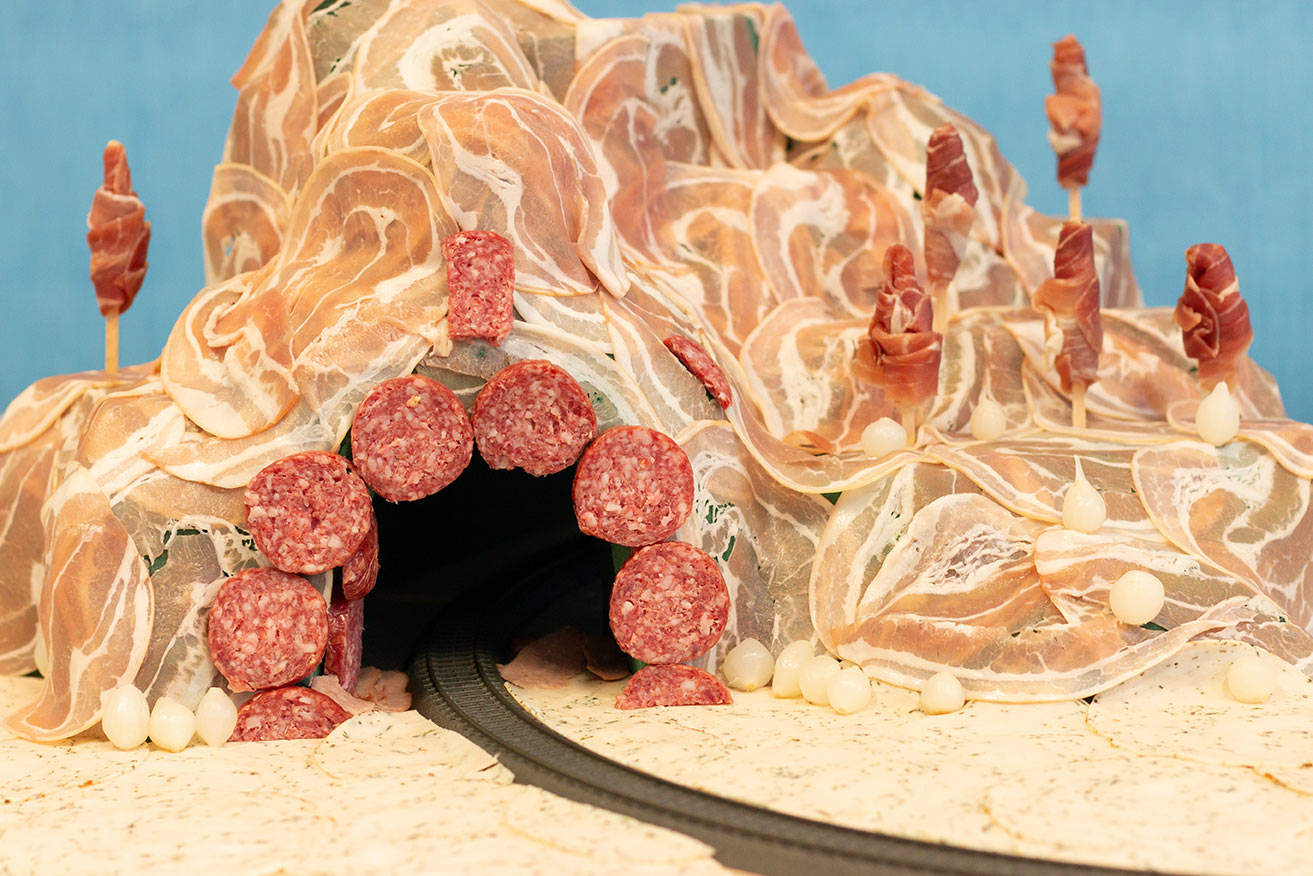3-channel video, 13 min
Nowadays migration can be portrayed as ‘the quintessential experience’ since market forces, wars and environmental disasters have uprooted an unprecedented number of people.
Nevertheless, according to researchers, migrants have to cope with discriminatory rhetoric and increasing stigmatisation – both individually and collectively – while complex and diverse reasons which lead to migration are generalised and simplified in order to create marginalised imagery of newcomers in the hosting community.
In this project, we address negative stereotypes and myths surrounding migration, both voluntary and forced. We also explore notions of the migrant body, violence, contested identities, belonging, food and hospitality in narratives about migration. We are approaching those issues through regressive culinary practices and the image of meat and sausage both as symbols of wealth and of a lack of high moral standards and cultural needs.
Those symbols could be tracked at the level of language from Soviet times to contemporary society: ‘the sausage migration’ term was used to stigmatise a wave of immigration from the Soviet Union in the late 1980s till its dissolution; around the same time, the term ‘sausage trains’ was used to describe a specific kind of commuting practices in order to buy some food in richer regions; according to linguistic research on Ukrainian values from 2012, in contemporary Ukrainian language “sausage” as a symbol is most often was linked to a lack of high moral values.


Participants (in order of appearance):
Alicja Wysocka, Lia Dostlieva, Arpita Akhanda, Mariam Elnozahy, Sumugan Sivanesan
Audio mastering: Yuri Kupriyanov
Commissioned for the exhibition Chronic desire — Sete cronica,
curated by Cosmina Goagea, Corina Oprea, Brindusa Tudor,
in the framework of the Opening of Timisoara 2023 European Capital of Culture.
